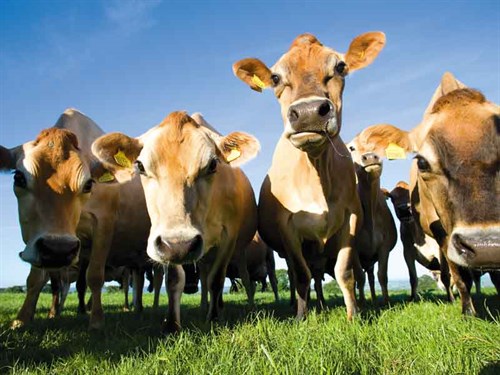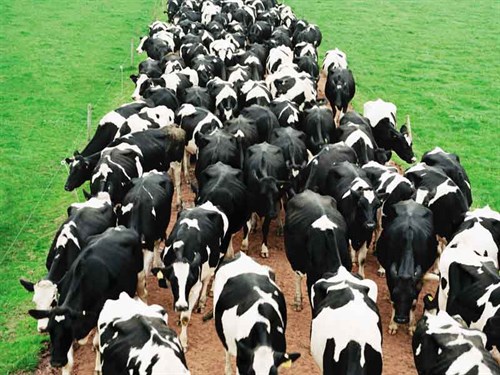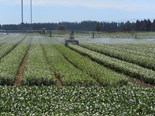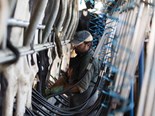Farm advice: Mycoplasma Bovis and NAIT compliance
This is the first real test of the NAIT system and its effectiveness in assisting MPI in dealing with an outbreak of a contagious disease in cattle
The outbreak of Mycoplasma bovis (M.bovis), first detected in New Zealand in July 2017, is the first real test of the NAIT system, which was introduced in 2012 by the National Animal Identification and Tracing Act 2012 (NAIT).

The purpose of NAIT (as set out in the NAIT legislation) is to establish an animal identification and tracing system that: provides for the rapid and accurate tracing of individual, or groups of, NAIT animals from birth to death or live exports, provides information on the current location and movement history of individual, or groups of, NAIT animals, improves biosecurity management, manages risks to human health arising from residues in food, food-borne diseases, and diseases that are transmissible between animals and human, and supports improved animal productivity, market assurances, and trading requirements.
As you can see, of the five purposes of the NAIT legislation, four of those assist in providing information about stock and their movements, which is critical in situations where there is an outbreak of a disease such as M.bovis.
The NAIT system assists the Ministry for Primary Industries (MPI) in carrying out its obligations under the Biosecurity Act 1993. NAIT, therefore, is a critical element in enabling MPI to eradicate or manage disease outbreaks by monitoring stock movements.
The current outbreak is, as mentioned above, the first real test of the NAIT system and its effectiveness in assisting MPI in dealing with an outbreak of a contagious disease in cattle.
Obligations for those in charge of stock
At the farm gate, however, there are critical obligations (s24 under the NAIT Act) for people who have day-to-day charge of NAIT animals (NAIT animals being basically cattle and deer).
Those obligations are to:
- register as a PICA (person in day-to-day charge of animals) with the NAIT organisation
- register with a NAIT organisation as a NAIT location where NAIT animals are to be kept or held
- identify a NAIT animal with a NAIT device (a micro-chipped ear tag) and register the animal with a NAIT organisation
- declare the movement of NAIT animals from one NAIT location to another
- declare the death, loss or intended export of NAIT animals, and
- provide correct and up-to-date information for the NAIT organisation as required by, or under, this legislation.
Obviously, the technology that is currently available is critical to the success of NAIT system. Even 20 years ago, the technology probably wouldn’t have been quick enough or easy enough to use to make the system react quickly enough to be useful in an outbreak.
Time will obviously tell whether the system can cope adequately with an outbreak such as M.bovis.
Essential you comply with NAIT
The real teeth of the NAIT Act is in Schedule 2, which has comprehensive compliance and enforcement provisions. If you haven’t complied with your NAIT obligations, it could compromise your ability to claim compensation if you are required to cull your herd in the wake of M.bovis.
Mycoplasma Bovis and NAIT compliance farm advice
- the powers under the Act are exercised
- for the purpose of eradicating or managing an organism
- the powers are not exercised to implement a pest management plan or pathway management plan, and
- the exercise of the powers causes loss to
- a person as a result of:
- damage to or destruction of that person’s property, or
- restrictions imposed under part 6 or 7 of the movement or disposal of the person’s goods.
Compensation is available for a loss that you can:
- verify, and
- you have been unable to mitigate by taking every step that is reasonable in the circumstances.
If you don’t comply
Compensation, however, can’t be paid if:
- you suffered the loss before the time the exercise of the powers began
- you didn’t comply with biosecurity law:
- in a serious or significant manner,
- in a way that contributed to the presence of the organism, or
- in a way that contributed to the spread of the organism, or
- you apply outside the time limits in the Biosecurity Act (one year from when the loss ought to have been verified in most cases.)
Affected by the cull?

At the time of writing, the cull has just been ordered. Obviously, the operational aspects of the cull takes precedence over deciding what compensation could be payable to you, if you are eligible of course.
If you are affected by the cull, you will want to lodge your compensation claim as soon as you can. Make sure you have all evidence you think is needed in order to help with your claim.
However, if you haven’t complied with your obligations under either the Biosecurity Act or the NAIT Act, then it may well be that you don’t qualify for compensation on the grounds set out above.
If you need help with making a claim or need advice on whether you comply with the grounds for compensation, talking with your professional adviser will be helpful.
Obligations for those in charge of stock
- If you’re in the day-to-day charge of NAIT animals (cattle and deer), under the NAIT Act you have obligations to: register as a PICA (person in day-to-day charge of animals) with the NAIT organisation,
- register with a NAIT organisation as a NAIT location where NAIT animals are to be kept or held,
- identify a NAIT animal with a NAIT device (a micro-chipped ear tag) and register the animal with a NAIT organisation,
- declare the movement of NAIT animals from one NAIT location to another,
- declare the death, loss or intended export of NAIT animals, and provide correct and up-to-date information for the NAIT
- organisation as required by, or under, this legislation.
Source: s24 National Animal and Identification and Tracing Act 2012.
Information given in this column should not be a substitute for legal advice.
Neil Dent is a partner in Hastings law firm, Gifford Devine. He specialises all aspects of rural and commercial property and related issues. Gifford Devine is a member of NZ LAW Limited, an association of 54 independent law firms practising in more 70 locations.
Keep up to date in the industry by signing up to Farm Trader's free newsletter or liking us on Facebook


.jpeg)
.jpg)
.jpeg)

.jpg)
.jpeg)
.jpg)
.jpeg)







